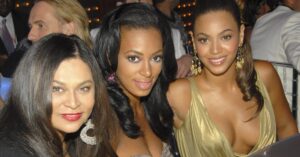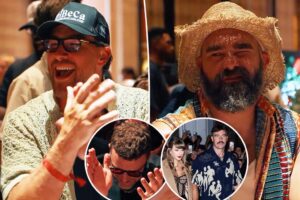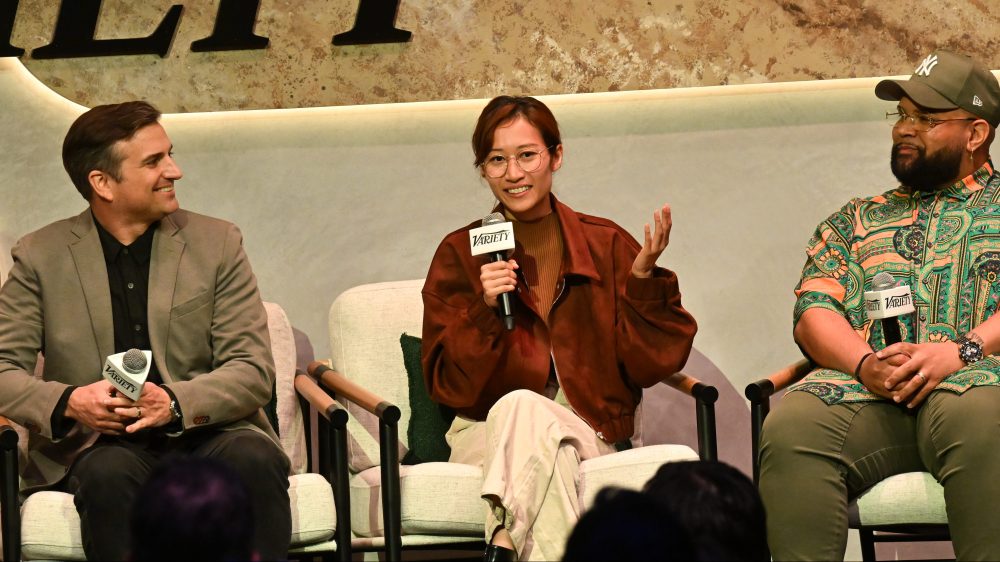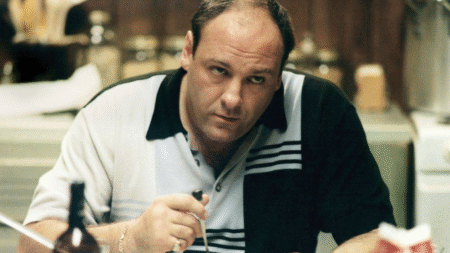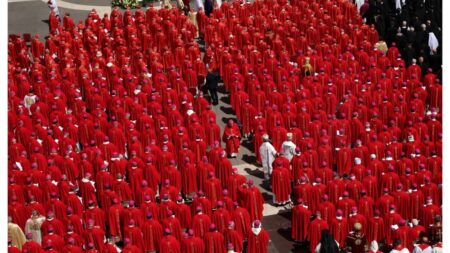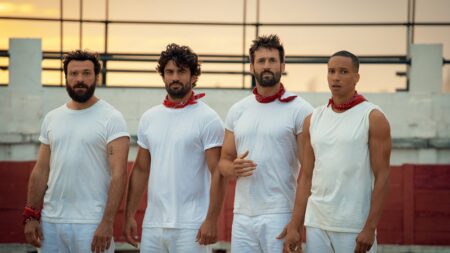For a sense of the challenge of today’s incomprehensibly diffuse media ecosystem, consider the scope of activity in digital advertising within the Magic Kingdom alone.
“In any given week, there are 4 billion to 5 billion ad impressions running across Hulu, Disney+ and ESPN,” said Josh Mattison, executive VP of digital operations for Disney Advertising, during a session at Variety’s Entertainment Marketing Summit. “In any given month, we see 50,000 pieces of ad creative come in.”
Disney’s Josh Mattison
Variety via Getty Images
Mattison shared those numbers during a conversation about using AI tools to assist with the staggering volume of advertising and marketing materials that flow through Disney’s digital pipes. Those stats underscore the issue that vibrated underneath just about every panel at the April 24 event: The methods for capturing audiences’ attention are proliferating at an exponential rate, while many consumers — especially Zoomers and millennials — have grown increasingly allergic to the perception that they’re being sold something.
To reconcile these difficulties, executives from legacy studios to streamers, TikTok and Google to Sephora and NASCAR kept sounding one crucial theme: authenticity.
“All of us need to move away from this myopic view of demographics and start thinking more about who these people really are and how to have an authentic connection with them,” said Darren Abbott, Hallmark’s chief brand officer, in the opening roundtable. “When you’re authentic to them, the consumers will come.”
For many, this means leveraging as much data as possible to target audiences in increasingly personal ways. On the content-side, Mattison noted that metadata tagging has grown so sophisticated that ads can be tailored to individual scenes within a show: If a scene is set in a kitchen, for example, the subsequent ad break might feature one of the appliances in the room. But much more common are campaigns that focus on specific details of how audiences have already connected to a brand.
For the year’s first blockbuster, Warner Bros.’ “A Minecraft Movie,” that meant bringing established Minecraft creators into the process from the start, including casting them in the film. “If you’ve been a movie theater lately, you probably heard ‘chicken jockey’ screamed as loud as possible from some of the auditoriums,” said Cameron Curtis, Warner Bros. global digital marketing chief. “That was all intentional, part of collaborating with creators from the get-go, not thinking about them after we had already made the film.”
Underscoring just how maddening marketing can be today, however, other panelists emphasized the dangers of getting too granularly focused on servicing specific fandoms.

iHeartMedia’s Gayle Troberman
Variety via Getty Images
“We are targeting our way to oblivion,” Gayle Troberman, executive marketing adviser for iHeartMedia, said in a panel about how so many consumers feel underserved. “We need to talk to more people to sell more stuff, not just people who love Taylor Swift and this kind of shoe and have cats and are really into pop music. If Taylor Swift just targeted Swifties, the Eras Tour wouldn’t have done a billion dollars. She targeted everyone.”
It’s the riddle of modern entertainment marketing: how to be at once comprehensive and bespoke, balancing two seemingly irreconcilable impulses within the same campaign. A perfect case study of this catch-22 was the discussion of “Wicked.” In one panel, Universal Pictures domestic marketing chief Dwight Caines said that the Broadway musical’s “rabid fan base” wasn’t enough to justify the two-film franchise’s $300 million budget, let alone set up the upcoming “Wicked: For Good” for success. “We had to expand beyond that,” he said. “We needed to reach audiences who said, ‘You know what, I don’t go to musicals, but I see myself in that movie.’”
But earlier in the day, NBCUniversal franchise and brand strategy chief David O’Connor said that the marketing for “Wicked” in non-English speaking territories required a much more specialized approach. “We found ways to build a branded ecosystem in Japan that was very different than what we did domestically,” he said. “As much as we like to develop global strategies, you still have to think locally.”
At the same time, vexingly, thinking locally can have a global impact. In the final panel of the day, Netflix marketing VP Shelly Gillyard was asked how the streamer navigates its biggest worldwide campaigns. “We have the benefit of over 1.2 billion social followers, and they speak to us all of the time,” she said. “But we are finding, if something does not hit in Brazil, it does not go around the world.”
Seated next to her, Sony Pictures global marketing chief Joe Whitmore — who will next release “Karate Kid: Legends” in late May — broke into a broad smile. “Well, luckily, ‘Karate Kid’ has a huge fandom in Brazil,” he said. “So I’m feeling very good!”
(Pictured top: Cameron Curtis, Warner Bros.’ executive VP of global digital marketing, digital creator Leenda Dong and Brandon Lentino, Viral Nation’s VP of creative and experiential, at Variety Entertainment Marketing Summit presented by Deloitte)
Read the full article here

